Choosing a bank account for your small business can feel overwhelming. There are so many options out there, how do you know which is right for you? At Fearless Financials, we know it’s possible to find a bank that meets both your business needs and your ethical priorities. You can do what’s right for your small business and what’s right for the world at the same time, and here’s how.
Keep business and personal bank accounts separate
My top tip for any self-employed person is to use a separate bank account for your business. Though this isn’t legally required for sole traders, mixing business and personal transactions in a single account is a recipe for disaster. By keeping things separate, you’ll:
- Save yourself, or your accountant, hours of sifting through your spending to work out where each transaction should be categorized
- Be better able to claim business expenses and reduce tax
- Have a better understand of how you’re business is performing and your overall position
Understand your business’ needs
There’s no one size fits all recommendation when it comes to banking. What’s best for you and your business depends on a number of factors, and it’s important to consider each of them as you make your decision.
When it comes time to choose a bank account, ask yourself these questions:
1. What type of business am I?
The structure and type of business you run will impact which bank account is best for you. For some businesses, there are legal or policy requirements for the type of bank account you’re allowed to use. Charities or nonprofits, for example, have to use a specific charity bank account. So do some research into the legal requirements of your industry and check with the banks you’re considering first in order to develop a short list.
2. How do I receive money?
Whether you’re paid most often in cash, bank transactions, or cheques (remember those?) the way you receive payments will impact which bank account is best for you. Especially with cash and cheque heavy businesses, you’ll need to know where you can deposit your payments and what fees may be associated with these deposits.
3. Do I receive overseas transactions
Another consideration is if you often receive or spend money in overseas currencies. Many banks have additional fees for deposits that aren’t in pounds so this is something to be aware of if you have many international customers. Many of my clients use Wise Accounts to handle their overseas transactions.
4. What tech is most important to me?
Banking is a big part of running a business. You want your bank account to be as tech savvy and efficient as you are in order to save yourself time and frustration.
At Fearless Financials, we use Xero for most of our accounting. Because of this, it’s important that the bank accounts of our clients have an automatic feed with Xero so you have access to realtime data without any tedious manual entry.
If being able to access your account on the go is important to you, you may also want to evaluate the mobile capabilities of your bank. Do they have an app? Is it easy to use, or a user experience nightmare?
Reevaluate if your current bank is best for you
Even if you already have a business bank account, it’s important to make sure your bank is still meeting your needs and desires. As your business grows and changes, so too will your priorities, and with a bit of reflection you may find that you’ve outgrown your current bank account.
We recommend looking back at the past 12 months of your business. If, like for many of us, your past year was heavily affected by covid, you can look at the past three months instead. What fees are you being charged for your banking? Which frustrations or struggles have you had because of your current bank? What have you loved about your current account, and what have you hated?
All these questions can help you reevaluate if your current bank account is right for you, or if it may be time for a switch.
Vote with your money
You care about your team, your community, and the world. We do too. That’s why we always consider how ethical a bank is at Fearless Financials. By ethical, we mean a bank that pays its fair due of taxes, acts responsibly and sustainably, and reinvests or works with businesses for good.
For both my business and personal accounts, I use Starling. I love that it was started by a woman who wanted to change banking and who believes that “good business and ethics go hand in hand.” Their fees are reasonable, they’re transparent with their business practices, and their link with Xero is scarily fast! You can read more about Starling’s ethics here.
Starling, along with other popular banks like Monzo, Tide, and Coconut, are considered challengers or disruptors. They’re significantly more ethical than High Street banks like HSBC, and are in the second tier of most ethical banks as scored by ethicalconsumer.org.
Unfortunately, banks in the first tier of ethical banking options like Triodos, Cumberland Building Society, or Unity Trust Bank are generally not as technologically advanced. It’s important you still balance the practical needs of your business with your ethical responsibilities. With that being said, it’s recently been announced that Triodos and Unity Trust Bank will be becoming Xero compatible in late 2021 / early 2022 which, if true, will be a total game changer for ethical banking!
You can read more about ethical business banking here. For more helpful videos and advice on running a successful business for good, check out the Fearless Financials instagram! You can also check out the the rest of our blogs here.

